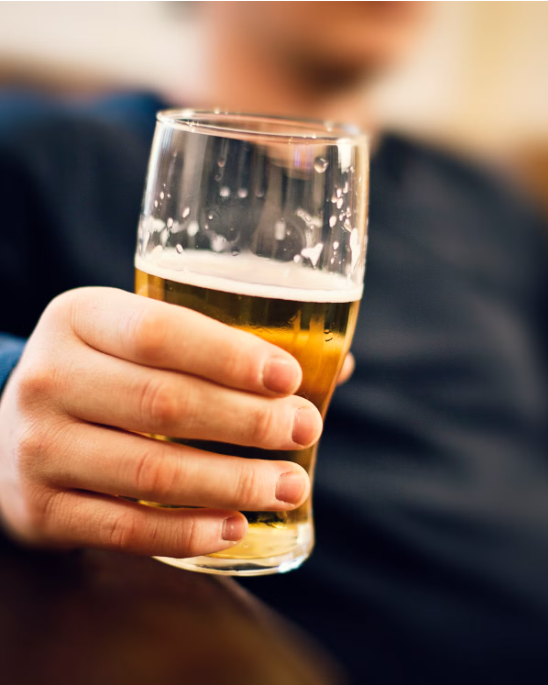I’VE SPENT A lot of money in my life trying to feel better than I do right now. The clothes, holidays, motorcycles, and substances only ever delivered a momentary result.
Yet I can say without question that the most effective and profoundly beneficial thing I’ve ever paid for that improves my mental health, my sleep, my mood and my recovery after training, is investing in a sauna.
After a significant consultation period with my CFO (my wife Audrey), and with a bit of assistance from my builder mate Jared, who helped us pour the slab, we recently installed a sauna in the backyard.
The science behind the benefits of deliberate heat exposure is robust, but that doesn’t mean taking a sauna is easy, although sometimes it’s less arduous that others.
When I’m in there with mates and having a chat, the fifteen minute hourglass slips by before we’ve even noticed. It’s hot, it’s uncomfortable, and yet it’s almost easy. But when I’m in there by myself, it’s a whole different story. I’m locked in an intense man on man battle between me and my dynorphins.
Dynorphins are the opposite neurotransmitter to endorphins, which we know get released during enjoyable activities like exercise or laughing. Endorphins not only feel good, they also reduce pain. Dynorphins, on the other hand, are released during periods of high stress or discomfort and can create a powerful sense of unease to signal that something is wrong.
So why would I deliberately put myself into a state of pain and dysphoria when I could be upstairs on the couch catching up on an entire weekend of football? Because there’s clear research that repeated, deliberate heat exposure causes an adaptation response where the sensitivity of our brain’s dynorphin receptors decreases over time. Essentially, your body learns to handle stress better, making you more resilient to both physical and mental challenges.
This is all well and good in theory, but it only works if you do it for a certain amount of time, and it’s hard to remember all this when you’ve got four unbearable minutes to go in your giant backyard yum-cha steamer (I do look a little like a dumpling sitting there in my DT’s). But last night, as I tried to get through a particularly intense timed session, I tried something new. Deliberately feeling the full experience of the discomfort I said out loud,
“This is uncomfortable”.
Taking a breath in and really focussing on the sensations of discomfort, I breathed out saying
“Lucky I can withstand discomfort”.
As soon as I said this, an uncomfortable environment, which just a moment ago had me almost launching out the door, gasping for breath, standing under a cold shower and then immersing myself in the cold plunge for five minutes – suddenly and quite noticeably became bearable. A few seconds later I wanted to escape again, so I kept repeating the pattern.
Before I knew it the hourglass had ran out and that was my 15 minutes. Sitting in the blissful relief of the cold plunge, staring up at the stars, I became very curious.
How can something that my body is telling me is impossible to endure almost instantly become endurable? Isn’t the same brain giving me both experiences? Turns out that self-talk is one of the most powerful ways that we can influence not only our ability to handle emotional and physical discomfort, but also to enhance our performance.
The core message from everyone from the Stoics to eminent psychologists like Carl Jung, is that if you can change how you think about something, and then you change how you feel about it. But what does this mean for physical performance?
The research shows that what you say to yourself while exercising can profoundly affect how your body and mind handle a workout. If you’ve ever done a Time-To-Exhaustion (TTE) test on a bicycle, you’ll know that they are one of the most brutal tests of fitness that you can do (easily as horrible a beep test).
Towards the end you’re absolutely anerobic, completely cooked, and cursing the fact you ever took your training wheels off. I assume this is why some possibly sadistic researchers in the US tested 24 cyclists by having them pedal at 80 per cent of their maximum heart rate until they just couldn’t pedal anymore.
Split into two groups where one group practised motivational self-talk for two weeks, and the other group didn’t, after two weeks, they repeated the cycling test and the results were startling. The self-talk group lasted significantly longer during the cycling test, being able to handle the pain for a whopping two extra minutes of heroic effort. While the control group showed no improvement, the time to exhaustion for the self-talk group increased up to 12 minutes from a baseline of 10 minutes.
What’s equally impactful is that the self-talk group reported that the exercise felt easier at the halfway point, while the control group didn’t notice any change in how difficult the exercise felt. It’s nice to see some science behind the kids’ book The Little Engine That Could.
But what about something that isn’t just pumping your pistons on a bike? Whenever I take my son to the basketball, I’m always impressed by athletes that within the same minute are sprinting up and down the parquetry, then being completely still and utterly focused as they take the lead by nailing a free throw while 10,000 people (including me and our five-year-old) scream “airball” at them.
The data on self-talk improving basketball shooting accuracy is absolutely wild. Researchers in Greece split 41 male basketball players into two groups: one used self-talk, and the control group didn’t. Both groups practised as normal, practising the same amount of free throws for three weeks. The self-talk group used specific phrases like “I can do this” or “focus on the target” and worked towards personalised phrases that gave them their own specific performance cues. At the final test both groups did shuttle runs to simulate game conditions, and then took free throws while fatigued.
The self-talk group scored significantly higher than the control group, which could easily be the difference between making the playoffs and having a very, very early mad Monday. When we use positive self-talk, we’re adding an extra success factor on top of our accumulated conditioning, practice and teamwork.
But what about negative self-talk? Often, we’ll say the most reprehensible things about ourselves when we mess up. Things that nobody would ever dare say to us. Watching the footy on the weekend, I saw a strapping young lad miss a crucial kick to convert a try, and then slap himself in the head about six times. Hard.
As it turns out, if we slap ourselves around like that, we significantly reduce our chances of making the next conversion successfully. Spanish researchers working with a group of gymnasts found that just as positive performance could be predicted by positive situational self-talk, negative performance could be predicted by negative situational self-talk.
So be careful what you say to yourself when you’re under the pump. Whether you’re running a triathlon, sitting in the sauna with me being human pork buns, or dealing with your furious teenager who’s grinding your gears about not being allowed to go to a party with kids four years older than her at a house where the parents are away and “oh my god you guys are horrible come on literally everyone else is going, you’re going to ruin my life”, remember that no self-talk is actually better than negative self-talk.
The research is clear that if you can use self-talk that is in alignment with the outcomes you want to achieve, it will improve your chances of achieving those outcomes.
Even if it’s taking a breath and saying to yourself “I’m a kind parent with great boundaries, if it’s a choice between keeping her safe and keeping her happy, I’ll choose safe every time, I can handle unhappy”.
Positive self-talk is a way that can help you not only endure things that are hard, but achieve goals you might not have otherwise achieved. I’d urge you to give it a try, think of it as a power-up that amplifies your existing training and preparation. For me, I’m off to crank up the thermostat on our sauna and do some of my own research into this.
Not in a weird, flat earth/lizard people way, research with a stopwatch and a notebook. You know, science.
Related:
Osher Günsberg on coming to grips with what you can actually control in life
Osher Günsberg on why you need a mental map















